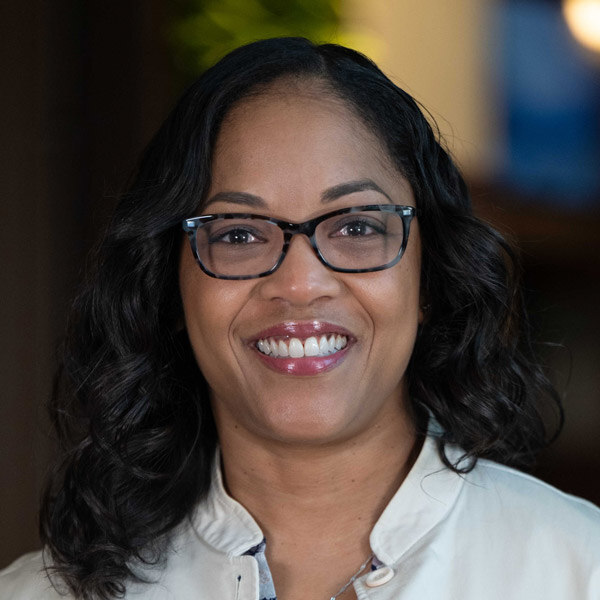When I think about the role of technology in healthcare, I feel both excited and cautious. Excited, because scaling technology means we can reach more people and bring therapies to market faster. Cautious, because I’ve seen how scale can sometimes take away the personal touch—the relationships and trust—that matter most to communities.
For me, this work is personal. I see the impact of health equity—or the lack of it—every day in communities we work with. It shows up in the stories people share about not being represented in clinical trials, or in the challenges they face finding quality, connected care. Those conversations are what drive me as a product leader. If our solutions don’t reflect real lived experiences, then we aren’t truly serving the people who need them most.
That is exactly the challenge of scaling technology in healthcare. When advancements don’t keep people at the forefront of innovation, equity is reduced to a talking point instead of a tangible mission. And the opportunity lies in figuring out how to maintain human connections, from conception through expansion.
Why Personalization Is the Foundation of Health Equity
At its core, health equity is about fairness. That no matter your race, ethnicity, gender, or zip code, you should have access to the same opportunities for health and healing. But access alone doesn’t guarantee equity. If the therapies, programs, or tools you receive don’t reflect your reality, then they fall short.
Think about clinical research. A trial that recruits mostly one demographic won’t provide insights that are reliable across different communities. A digital health platform that ignores cultural or language differences will exclude people who most need its services. And a wellness app that assumes every user has the same resources or routines won’t create lasting behavior change.
Personalization—the ability to listen, adapt, and reflect the lived experiences of different groups—is the bridge between access and equity. Without it, technology risks reinforcing the same disparities it was meant to solve.
The Risk of Scaling Without Community Trust
As solutions grow, personalization often fades. Technology that feels tailored at a local level can become rigid and generic when it expands to serve a larger audience. Communities that once felt heard may feel like their voices no longer matter.
This point is where trust begins to break down. If people see that a tool or program no longer reflects their needs, they disengage. And once trust is lost, equity becomes almost impossible to achieve.
Failing to foster community trust and maintain personalization can produce very real consequences for communities. Underrepresented groups such as non-Hispanic Black patients, experience hospital mortality rates nearly 30% higher than non-Hispanic White individuals for comparable illnesses. These inequities are often amplified by algorithmic blind spots and a lack of attention to social determinants of health—like transportation barriers, income constraints, or access to care.
Responsible scaling means designing systems that earn and preserve trust from development through go-live and beyond. Transparency, open communication, and continuous feedback loops aren’t optional—they’re essential safeguards that ensure no community is left behind.
The key? Affective trust—building genuine confidence by deeply understanding and respecting the people these systems are meant to serve.
How “Touch Before Tech” Keeps Products Human
At Acclinate, we often say “touch before tech.” It’s a reminder that trust begins with real relationships in the community. Similarly, product design shouldn't start in a lab or boardroom, but with conversations at local events, health fairs, and community gatherings.
Such dialog serves two roles: guiding the direction of technology and creating accountability. When people see that their input shapes features—like accountability partnerships in our mobile app—they know the technology reflects them. That sense of ownership is what keeps personalization alive, even as the platform grows.
Building Feedback Loops That Strengthen Equity
Scaling with equity in mind requires more than one-time input. It takes constant listening. That’s why continuous feedback loops are critical.
For us, establishing two-way channels entails in-person focus groups where users try features live and share reactions in the moment. It also means establishing community advisory groups that help shape new initiatives. And it involves building tools inside the app itself that make it easy to say “this works for me” or “this doesn’t.”
These touchpoints ensure that the product doesn’t drift away from the people it’s meant to serve. They also make scaling possible. By collecting input continuously, you can adapt as communities evolve, rather than making assumptions that become outdated quickly.
Using AI to Scale Personalization Without Bias
Artificial intelligence is often presented as the ultimate solution for scaling personalization. And while it has enormous potential, it also comes with risks. Many AI models are trained on biased datasets that don’t reflect diverse populations. If left unchecked, these biases can reinforce inequities instead of reducing them.
The key to preventing these pitfalls is to build AI responsibly, grounded in authentic community data. At Acclinate, we developed our own predictive models within e-DICT based on insights from the communities we serve. That means our recommendations reflect real lived experiences rather than generic trends or vanity metrics. AI, when used this way, helps scale personalization without obscuring it.
Keeping a North Star While Scaling Responsibly
Every product leader knows that scaling requires change. Features evolve, systems become more complex, and processes adapt to new audiences. But change doesn’t mean losing your North Star. For us, that guiding principle is putting people first. No matter how our products grow, we measure success by whether communities still feel seen, represented, and connected.
Lessons for Leaders Building Equitable Technology
For those building technology in healthcare—or in any field where equity matters—the path forward is clear:
- Start with touch. Build relationships in the communities you want to serve before you build the technology.
- Listen continuously. One-time feedback is not enough. Create ongoing loops to keep products relevant and responsive.
- Scale transparently. Communicate changes clearly, and bring communities along in the process.
- Use AI responsibly. Build models rooted in authentic, diverse datasets to avoid reinforcing bias.
- Keep your North Star. Growth is inevitable, but equity must remain the measure of success.
Scaling Without Losing What Matters Most
As I reflect on the work we’re doing, I keep coming back to one simple truth: health equity will only happen if people feel seen and heard. Technology can help us move faster, but it should never replace the relationships and trust that make progress possible.
For me, keeping personalization alive is the safeguard. It’s how we make sure that as our tools scale, they don’t lose their connection to the very people they’re meant to serve. That’s the measure I hold myself to as a product leader, and it’s the commitment we carry forward at Acclinate.
By protecting personalization, we can build scalable technology that reaches more people and truly serves every community.
Ready to scale your trial's outreach without losing trust? Schedule a 1:1 with our team.









.webp)




